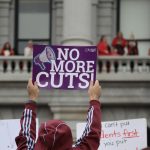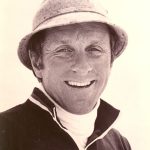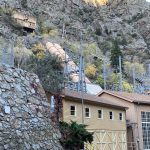Vail Daily columnist Jack R. Van Ens: In the shadow of the ‘shining city’
Vail, CO, Colorado
The founding fathers’ motivation for giving thanks often differs from contemporary expressions of gratitude. Colonial leaders offered thanks to God by sacrificing personal contentment for the greater good of
society.
In contrast, don’t we measure our thanksgiving by how far we personally get ahead rather than by how our efforts have improved civic culture? If the harvest proves plentiful and our wallets are thick, we show gratitude. Individual self-fulfillment trumps personal sacrifice.
Why the rain check on sacrifice? Founding fathers believed personal liberty thrived and national freedom flourished when citizens practiced “civic virtue.” Today this phrase sounds old-fashioned. Still, our society hungers for it. Virtuous citizens who sacrifice for the common good suppress immediate gratification.
History confirms that when citizens are out of work or feel stuck in their jobs, they practice less civic virtue. When a shaky future coupled with plummeting home equity affects us, we get preoccupied with our tight circumstances. We tend to focus on what we can get to better ourselves rather than what we can give back to make a better society.

Support Local Journalism
In the 1980s, President Ronald Reagan was enormously successful in getting Americans to dwell less on sacrifice and more on getting ahead. He assisted a small segment of society to prosper.
“From 1979 to 2007, 275 percent is the growth of the after-tax income of the wealthiest 1 percent of people in the U.S.,” Time magazine reported.
Reagan skillfully used the Bible to convince citizens that morning brightly shined in America and financially rewarded self-fulfilled citizens. He borrowed imagery the Puritan preacher John Winthrop lifted from Jesus.
Speaking to the Massachusetts Bay Co.’s sea-farers in 1630, Winthrop described their settlement in Boston as “a city upon a hill” (Matthew 5:14) in his sermon “A Model of Christian Charity.”
Reagan frequently used this metaphor in his presidency. For instance, in his re-election acceptance speech at the 1984 Republican National Convention, he rallied citizens.
“We proclaimed a dream of an America that would be a shining city on the hill,” Reagan said. This city of success, shorn of sacrifice, burned brightly in Reagan’s eyes. It blinded him to the plight of those shivering in shadows.
Blessed with an affable personality, Reagan habitually avoided the shadows. He told “Good Morning America” in 1984 that homeless people who slept on grates were “homeless, you might say, by choice.” Better to promise self-fulfillment, thought Reagan, than devote time to Winthrop’s demands regarding personal sacrifice.
Winthrop’s city didn’t glow as Reagan imagined. This Puritan preacher’s city was where “the rich and mighty should not eat up the poor,” where “if thy brother be in want and thou canst help him … if thou lovest God thou must help him.”
In the same year 1984, then-New York Gov. Mario Cuomo exposed Reagan’s blindness in his keynote address, “A Tale of Two Cities,” at the Democratic National Convention.
“A shining city is perhaps all the president sees from his portico of the White House and the veranda of his ranch, where everyone seems to be doing well,” Cuomo said. “But there’s another city; there’s another part to the shining city.”
Cuomo described another America. “Maybe, maybe, Mr. President, if you visited some more places; maybe if you went to Appalachia, where some people still live in sheds; maybe if you went to Lackawanna, where thousands of unemployed steelworkers wonder why we subsidized foreign steel. Maybe, maybe, Mr. President, if you stopped in at a shelter in Chicago and spoke to the homeless there; maybe, Mr. President, if you asked a woman who had been denied the help she needed to feed her children because you said you needed the money for a tax break for a millionaire or for a missile we couldn’t afford to use.”
Reagan’s rhetoric bedazzled more Americans than did Cuomo’s dire picture of hard-pressed citizens subsisting in the shadows.
Reagan’s supporters believed they would bask in the wealth and success of the shining city on the hill.
Winning 49 states in 1984, he was swept into the White House for a second term. Few wanted to be reminded of personal sacrifice. Self-fulfillment enticed them.
During this Thanksgiving season, more and more Americans slip into economic shadows. They scrimp and downsize. Too few in our land feel the warmth of the shining city on a hill. Citizens who want work but can’t find jobs languish in valleys. They are good people cut down by bad luck.
What are we to do so that light from the city on the hill shines on more
citizens?
Follow in the founding fathers’ footsteps. Practice civic virtue. Make a difference in your community. Act as neighborly citizens who are willing to sacrifice for the common good.
The Rev. Jack R. Van Ens is a Presbyterian minister who heads the nonprofit, tax-exempt Creative Growth (www.thelivinghistory.com), which enhances Christian worship through storytelling and dramatic presentations aimed to make God’s history come alive. Van Ens’ book, “How Jefferson Made the Best of Bad Messes,” is available in local bookstores.










